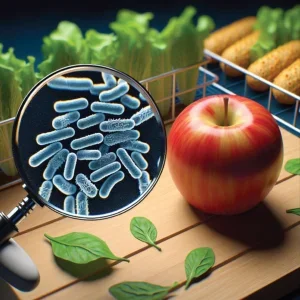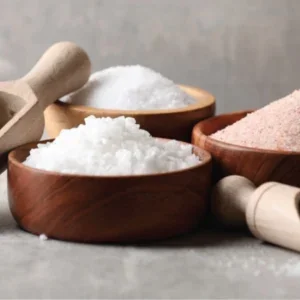
For most people thinking of taking a supplement, Vitamin K2 would not be top of the list. Unlike better established supplements, Vitamin D for instance, there is scant public knowledge about why K2 is necessary – or indeed what it can do. There are no standardised indicators that can tell you whether someone is deficient, nor are there any clear recommendations around how much you should consume each day.
That said, many researchers are convinced it’s only a matter of time before K2 becomes better known. After all, it appears to play a critical role in blood clotting, bone health, and heart health, through regulating the way that calcium is used in the body. Strikingly, it’s also very hard to get enough of the vitamin through dietary sources alone.
This means K2 could soon become a rising star of the nutraceuticals market. The market research firm Mintel noticed this trend as early as 2013, reporting that product launches containing Vitamin K2 had almost doubled over the past five years. Around the same time, Innova Market Insights described Vitamin K2 as ‘the next big thing’. Since then, sales have increased rapidly. A report by DataHorizzon Research suggests the market will surge from $549m in 2022 to $1.154bn a decade later.
1:9
The ratio of Vitamin K2 to Vitamin K1in a typical Western diet.
National Library of Medicine
“When I first came across research about Vitamin K2, I was surprised to learn there was a nutrient with’ important health benefits that I had never heard about before,” says Dr Kate Rhéaume, a Vitamin K2 expert and author of Vitamin K2 and the Calcium Paradox – How A Little-Known Vitamin Could Save Your Life. “With more digging, I uncovered a robust body of evidence about Vitamin K2 that had been obscured. Ultimately, I realised that Vitamin K2 provides a missing piece of the puzzle for many people’s health concerns.”

Piotr Jandziak makes a similar point. The general manager of Polish manufacturer Pharmaquinone, he was introduced to the vitamin in 2006, and has been developing Vitamin K2 products ever since.
“I think we as the industry could have done better in launching Vitamin K2 to the market,” Jandziak reflects. “But in some large, mature markets, like the USA, Germany, and Poland, Vitamin K2 has already entered the mainstream and has become a commodity like Vitamin D3.”
“When I first came across research about Vitamin K2, I was surprised to learn there was a nutrient with important health benefits with that I had never heard about before.”
Dr Kate Rhéaume
Keeping calcium in its place
The story of K2 began in 1929, when the Danish biochemist Henrik Dam discovered a nutrient he called ‘Koagulationsvitamin’. As the name implied, the vitamin played an essential role in blood clotting. Over the years that followed, researchers established that there were two versions of the vitamin: the plant-sourced K1 (phylloquinone) and the animal-sourced K2 (menaquinone). What they didn’t realise, however, was that K2 had roles beyond just blood clotting – nor that it was anything other than K1 in a different form.
77%
The percentage reduction in the prevalence of hip fractures when trial participants took Vitamin K2.
NCBI
It wasn’t till the 1990s that another story began to emerge. As researchers had already understood, K1 is indeed a ‘coagulation vitamin’. But K2 has another purpose: to deposit calcium in the bones and teeth (where it belongs) while keeping it out of the soft tissues (where it doesn’t). There are several different subtypes here, with the MK4 and MK7 variants attracting the most research attention.
According to Dr Tao Zhang, a researcher at Technological University Dublin, Vitamin K2 appears to act on almost every system in the body. He notes that more than 10,000 scientific papers have been published to date on its physiological functions, meaning that the evidence base is “relatively mature”.
“Vitamin K2 has two main functions: calcium regulation and release of energy,” Zhang explains. “Calcium is not only important for bone health, but also is involved in many physiological processes, including heartbeat, nerve transmission, skeletal muscle, smooth muscle, and cardiac muscle contraction. Another aspect is energy. Vitamin K2 supports the function of mitochondria – energyproducing organelles within cells.”
Given such broad-ranging effects, it isn’t surprising that deficiency might have unpleasant consequences. One of these is osteoporosis (when there isn’t enough calcium in the bones) while another is atherosclerosis (when the arteries become clogged up with plaque and subsequently calcium).
“We usually have a relatively high amount of calcium in circulation, because we need it for our heart to beat, muscles to contract, nerves to fire – not to mention healthy bones and teeth,” says Rhéaume.
Unfortunately, calcium can deposit elsewhere in the body too, resulting in heel spurs, kidney stones, or in the worst-case scenario, hardened arteries. Vitamin K2, Rhéaume stresses, “plays a major role in keeping calcium in its place”.
The case for supplementation
Viewed this way, it’s easy to see how the so-called ‘calcium paradox’ might emerge. This refers to the fact that, in countries that consume large quantities of dairy products, osteoporosis rates are high (along with rates of stroke and heart disease). In fact, countries with the highest calcium intake also have the highest hip fracture rates – an association that seems baffling when taken at face value.
This paradox disappears when you consider that, for those eating typical Western diets, calcium might not always be deposited in the right places. Unless you are also consuming Vitamin D (which helps with calcium absorption) and Vitamin K2 (which directs it to the bones and away from the arteries), you are probably not reaping its benefits.
Japan, by contrast, has a relatively low calcium intake – and a low prevalence of osteoporosis. Conceivably, this has something to do with their widespread consumption of natto, a fermented soybean product that turns out to be one of the few dietary sources rich in Vitamin K2. of Vitamin K2. Studies have found that natto is linked to reduced bone loss in postmenopausal women, as well as a lower risk of cardiovascular disease.
Vitamin K2 MK-7
The most popular and bioavailable form of Vitamin K2.
The Insight Partners
Aside from natto, other options include cheeses such as gouda, brie and jarlsberg, and the Korean fermented dish cheonggukjang. It’s a short list: while Vitamin K1 is present in plenty of foods, especially green leafy vegetables, K2 is a different story.
“Vitamin K2 comes from two sources, grass-fed animal foods and certain fermented foods,” explains Rhéaume. “When we took animals off the pasture and confined them to grain feeding, our K2 intake took a major hit because foods like butter and egg yolks don’t contain the Vitamin K2 they once did. That means supplementation is very important for several populations, especially growing children, post-menopausal women, and people with a family or personal history of heart health concerns.”
Zhang adds that, while K2 can also be synthesised by our gut bacteria, modern food processing techniques might compromise this ability. He thinks that, since we start losing bone mass as early as our mid-30s, it would be useful for people to take Vitamin K2 supplements together with Vitamin D.

As he puts it: “Vitamin K2 has a relatively wide safety range, no significant side effects have been found, and the dosage range is considerably large.”
Jandziak at Pharmaquinone agrees that the two vitamins often work well together. In fact, many products on the market contain K2 and D3, often formulated into simple drops for children and the elderly. Other applications include twist-offs, chewables, sports nutrition and liposomes.
More research needed
Of course, the future of Vitamin K2 isn’t necessarily assured. If, after all, the case for supplementation is so watertight, then why aren’t our various national health bodies recommending it – as the NHS does for Vitamin D? The answer can probably be summarised in a single word: research. While the evidence base is growing, the science of Vitamin K2 is still decades behind other nutrients. There are many unknowns and more clinical studies are needed to discover how it truly impacts a person’s health.
Although there does appear to be an association between Vitamin K2 and heart health, for instance, that doesn’t mean we can safely tout it as a miracle cure. In fact, a 2022 clinical trial found that Vitamin K2 and Vitamin D supplements didn’t slow the progression of aortic stenosis in older men. Other research indications remain more speculative: claims that K2 supports cognitive function, fights cancer, or reduces inflammation, are not yet backed up by robust science.
“In addition to continuing bone and heart health science,” adds Rhéaume, “I’d love to see more research on children’s health as well as oral and dental health.”
We’re also largely in the dark when it comes to understanding K2 deficiency, either on a population level or individually. Jandziak, for his part, would like to see more work looking at biomarkers for K2 status – simple tests that would let clinicians know whether a person is deficient.
“This would allow patients to go to any lab and test their levels against the reference levels,” Jandziak says. “With that proven knowledge, we can start talking loudly about K2 deficiency. And for deficiency, we use pharmaceuticals, not supplements.”
Zhang points out that, since many of the functions of K2 have only been discovered over the past ten to 15 years, it stands to reason that official dietary recommendations wouldn’t have caught up with the basic research.
“Changing the recommendations can take time, as they typically rely on a substantial body of evidence and consensus among the scientific community,” he says. “It is important for ongoing research to provide more conclusive evidence supporting the health benefits of Vitamin K2, and for educational efforts to increase public awareness about this nutrient.”
Collagen: From bones to beauty
Vitamin K2 is a popular addition to the supplement sector – but it’s far from alone. That’s particularly clear when it comes to collagen. A major building block of the body’s tendons, muscles and bones, it represents 30% of an individual’s protein. Alongside sub-products like gelatin, meanwhile, there’s rising evidence that collagen could bolster health in a variety of ways. In general terms, that’s true in terms of promoting healthy joints and skin elasticity. It may also help clot the blood, and ensure the replacement of dead skin cells, particularly useful in older people. While found in a variety of foods, from seafood to meat, these advantages explain why people are increasingly taking collagen supplements, a global market that could reach almost $3bn by 2030.






